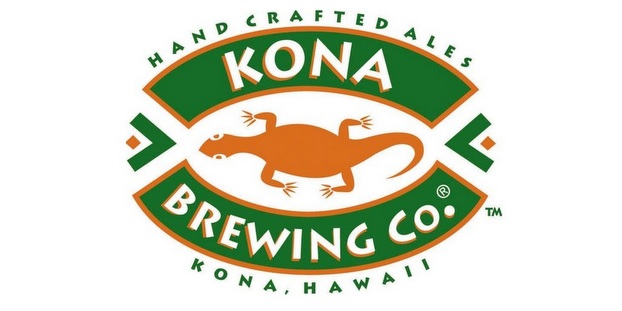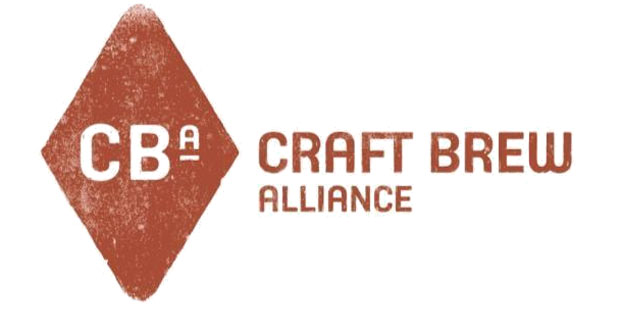
At the halfway mark of 2017, the Craft Brew Alliance continues to show results with its Kona-plus strategy (in which Kona is the rising tide that then lifts the other ships). Despite anticipated increasing market pressure that contributed to substantially slower growth for the craft beer industry overall, CBA increased depletions for Kona Brewing Co. by 9 percent in the second quarter and 11 percent for the first six months of the year.
“In my nearly 25 years in the beer business, I have seen the industry evolve and adapt countless times but nothing has come close to the competition, complexity and consumer-driven change facing our market today,” said Andy Thomas, chief executive officer, CBA. “Against this backdrop, CBA’s ability to sustain robust growth for Kona, accelerate our partnership strategy and make significant progress evolving our brewing footprint while stabilizing inventory levels is not just impressive but highly encouraging as well.”
Kona represents more than 50 percent of CBA’s total portfolio volume. Kona flagship Big Wave Golden Ale posted a 17 percent increase in depletions in the second quarter, and the newest national brand, Hanalei Island IPA, remains in the top 10 of all craft beer launches nationally as measured in grocery sales by Nielsen.
“In the second quarter, we accomplished several key milestones as part of our strategy to increase efficiency, reduce overhead costs and improve gross margins,” the company noted in its earnings release. “We completed the closure of our Woodinville facility, ended our brewing partnership in Memphis and shifted all remaining production out of those facilities, while continuing to keep wholesaler inventory levels 30 percent lower compared to 2016.”
CBA execs expect to see substantial cost savings and improved utilization in the second half of the year.
What about those other brands?
Despite the increases from Kona, overall depletions decreased 2 percent for the quarter and 1 percent year to date. Shipments decreased 8 percent in the second quarter and 4 percent year to date, compared to the same periods last year.
“As anticipated, second quarter shipments reflect a challenging comparison to the prior-year period, as we had increased shipments in the second quarter of 2016 following the temporary closure of our Portland brewery in the first quarter of 2016,” CBA noted. “The second quarter and year-to-date shipment decreases reflect the impact of ongoing work to reduce inventory levels by one third compared to 2016 levels.”
Net sales decreased 3 percent to $60.6 million in the second quarter and increased 3 percent to $104.9 million year to date, over the comparable periods in 2016.
But we are perhaps just seeing the beginning of the CBA’s portfolio infiltrating shelves across the country. Remember, the organization signed enhanced agreements with sugar daddy Anheuser-Busch last year. The second quarter saw the first shipments of CBA beers from AB’s Fort Collins, Colo., brewery, which should show up in the results of the year’s second half.
“We continued to leverage our extended commercial agreement, with CBA brands participating in wholesaler volume incentive targets and building on the success we’ve realized through joint marketing and sampling programs,” the company stated. “With the international agreement, we continue to be optimistic and deliberate in developing our long-term international strategy with AB to build on our success growing Kona around the world.”
Update on strategic partnerships
During the second quarter, the CBA continued to expand Appalachian Mountain Brewery (AMB) across North Carolina; AMB is now the seventh largest local brewery in its home state. With Cisco Brewers, the Nantucket Island brand continued to grow in New England and grew depletions by 8 percent over the second quarter in 2016.
In July, the CBA also completed the acquisition of a 24.5 percent minority stake in Wynwood Brewing Co., based in Miami’s Wynwood Art District.
2017 financial highlights
The year-to-date net sales increase is primarily due to shipment growth for Kona and its partner brands, its alternating proprietorship business, contract brewing shortfall fees, AB international distribution fees and a 1.5 percent increase in average unit pricing. The company’s net sales increase also reflects the improvement over the first quarter in 2016, as shipments were impacted by the temporary closure of its Portland brewery.
Partially offsetting the first half increases were the impact of reducing days of inventory below 2016 levels and the challenging comparison to second quarter 2016 shipments as described above.
Second quarter gross profit decreased by 11 percent to $18.3 million, while year-to-date gross profit increased by 6 percent, to $31.0 million, compared to the same periods last year. The company’s second quarter gross margin decreased by 260 basis points to 30.3 percent compared to the second quarter of 2016, reflecting lower cost absorption due to lower shipment volumes as explained above, shifting production to Fort Collins, and lower foot traffic in the pubs, partially offset by a reduction in brewery labor costs and improved logistics operations.
Gross margin for the first six months increased by 80 basis points to 29.6 percent compared to the first half of 2016, reflecting improved brewery cost structure, partially offset by lower cost absorption and a decrease in pub foot traffic.
Selling, general and administrative expense (“SG&A”) for the second quarter was $15.6 million, a 6 percent decrease over the second quarter of 2016, and $31.0 million year to date, a 2 percent increase over the same period last year.
Financial guidance for full-year 2017
- Total CBA depletion change of flat to growth of 6 percent
- Shipments ranging between a decrease of 1 percent and an increase of 4 percent.
- Average price increases of 1 percent to 2 percent.
- Total gross margin rate of 30.5 percent to 32.5 percent.
“Our year-to-date performance is largely in line with expectations. We believe our plans for the balance of the year ensure CBA is well positioned to deliver on our objectives for 2017, particularly as it relates to continuing to advance our Kona Plus strategy and unlock the value of our AB agreements, while reducing brewing costs and improving overall efficiencies,” said Joe Vanderstelt, chief financial officer, CBA.


Leave a Reply
You must be logged in to post a comment.